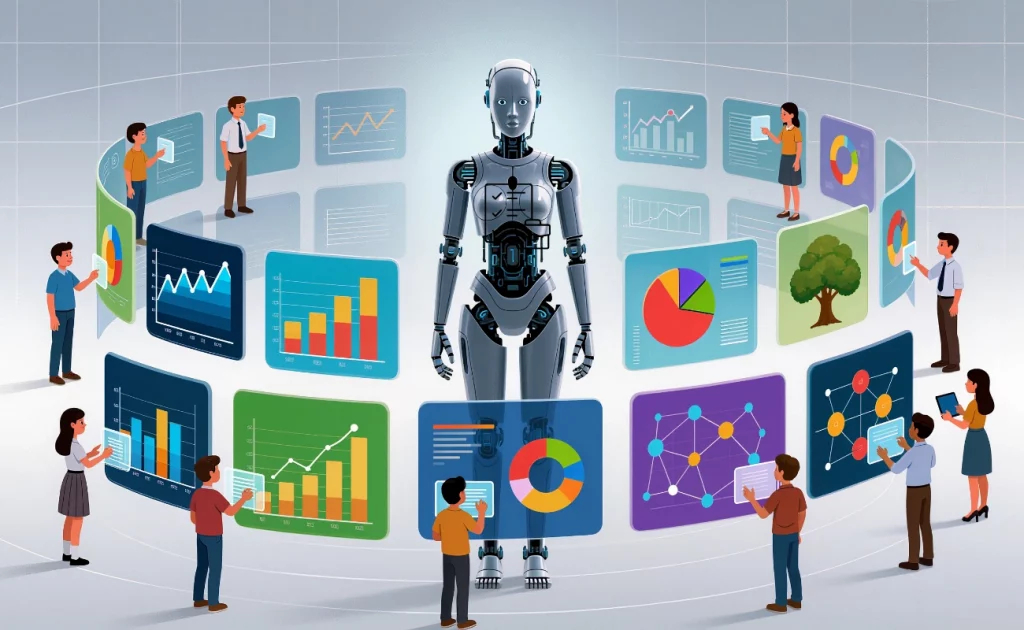According to Udemy’s latest study, 43% of Indian employees have completed employer-led AI training, double that of Western peers. Yet experts warn the next challenge is embedding AI fluency into everyday work.

The world is living through an AI gold rush. Every headline, boardroom conversation, and startup pitch today begins with two letters: AI. From generative chatbots to autonomous workflows, the technology has quickly moved from pilot projects to powering core business functions. Yet beneath this surge of innovation lies a quieter, more unsettling truth: while organisations are racing to implement AI, people aren’t ready for it.
A new global study by Udemy, spanning the US, UK, India, and Brazil, captures this paradox vividly. Most workers believe AI will transform industries, but few are preparing for how it will transform their own roles. In psychological terms, it’s the optimism bias at work: a belief that disruption will hit everyone else, not us.
The Readiness Paradox
The report’s findings are sobering. Between 40–44% of workers lack practical AI capabilities, from learning AI tools to incorporating them into workflows. Even in technologically advanced economies, readiness remains low: 55% of UK and 47% of US workers have received no AI training at all. The irony is that these are the very markets where AI investments and implementations are most aggressive. The workforce, meanwhile, lags far behind the technology it is expected to wield.
Results in the US, UK, and Brazil are representative of the general population aged 18 to 70, while results in India are representative of internet-using, English-speaking adults in the same age range.
India Leads, the West Lags
India emerges as an interesting contrast. Here, 29% of workers report adequate AI skills, with only 14% having no training, making it the most prepared among surveyed nations. The difference may lie in cultural attitudes: Indian professionals tend to see collective risk as personal risk. With 43% of workers having completed employer-offered AI training, India may be setting the pace for scalable readiness.
Across all countries, another kind of gap stands out, one that no algorithm can fix. Managers consistently highlight deficits in communication (up to 51%), critical thinking (50%), and teamwork (53%) among entry-level employees, while workers themselves underestimate these shortcomings. The data reveals what most leaders already sense: AI may automate tasks, but without adaptive human skills, productivity gains will plateau quickly.
The Skills No Algorithm Can Replace
For enterprises, this mismatch presents both a challenge and an opportunity. The challenge is obvious: an AI implementation strategy cannot succeed if the people behind it aren’t fluent in the tools they’re expected to use. The opportunity lies in rethinking how we build capability. Udemy suggests four actionable steps for leaders: conduct a “reality check” skills audit, make AI opportunities and threats personal, shift to skills-based hiring, and integrate learning into daily workflows.
From Degrees to Demonstrated Skills
The shift to skills-first hiring is already underway. Across the US (59%), UK (71%), and Brazil (66%), employers now prioritize demonstrated skills over degrees. AI literacy has become a new differentiator, not just for coders and engineers but across functions, marketing, HR, supply chain, and finance. This is forcing a cultural reset within organizations where learning must become continuous, contextual, and embedded into work itself.
The Bubble Within the Boom
But beyond workforce readiness lies the bigger question: Are we in an AI bubble? The global AI startup ecosystem has exploded, with over 70,000 AI-driven startups worldwide and nearly $90 billion in venture capital flowing into the sector this year alone. Much of this capital is chasing similar ideas, from synthetic data to AI copilots and automation platforms. The risk of overvaluation is real. Yet, as history shows, bubbles can be productive; they accelerate infrastructure, talent, and innovation. The internet bubble, after all, gave rise to the modern digital economy.
Still, a reckoning is inevitable. Many AI startups will struggle to scale beyond proof of concept; others will fade as enterprises consolidate around trusted platforms. What will endure are those that solve real problems, bridge business pain points with measurable outcomes, and not just showcase fancy models.
The Road to Real Transformation
In the end, the AI race isn’t about technology alone; it’s about adaptation. As the Udemy report notes, awareness offers no protection; only systematic skill development provides security in an AI-transformed economy. Workers who embraced upskilling in AI-exposed roles saw a 14% boost in earnings, proving that readiness pays literally.
For C-suite leaders, founders, and professionals, the message is clear. AI is not a future event; it’s a present reality demanding action. The companies and countries that succeed won’t be those that deploy the most algorithms, but those that ensure every human in the system knows how to work with them.
The AI revolution is not coming. It’s here. The real question is, are we ready to ride it or watch it pass by?